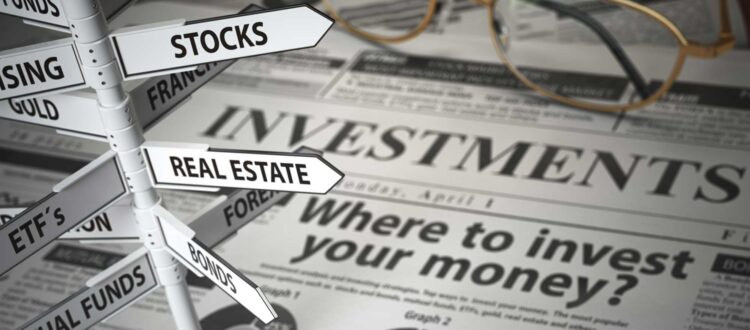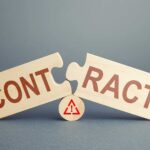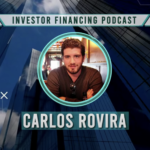Three (3) Reasons Why Real Estate is a Better Investment than the Stock Market
Most Americans have a majority of their savings and retirement invested in the stock market. Whether you have opted for a 401(k), IRA, or a traditional brokerage account, chances are a huge chunk of your savings will end up in stocks. Since the Great Depression, products such as these have been marketed hard and pushed on Americans in order to make it seem as though you are building a nest egg to eventually retire after a long career.
Sadly, investing in the stock market comes with a number of risks and in fact, is not the most powerful way to build wealth. The following article will draw some comparisons between Real Estate and Stocks, in order to hopefully create an understanding that owning and investing in real estate is a far more powerful wealth building tool than the stock market.
Real Estate has Intrinsic Value
The first and probably most important difference between stocks and real estate, is that real property has an intrinsic value. This is a value that is independent of any market forces that may be dictating what the property will sell for. In real estate, there is a hard asset that can be seen, touched, and controlled. A real estate owner/investor can go bankrupt, but that will not change the fact that any property owned still has some sort of value.
Stocks and securities, on the other hand, do not have an intrinsic value. Shares of companies that are traded on a public exchange at any moment can go to zero dollars in value. If a publicly traded company goes bankrupt and is liquidated, investors will mostly lose their investment and there is no hard asset to recover when all is said and done. The COVID-19 Pandemic has proven this point to us. How many companies are filing for bankruptcy and how many companies lost billions in market capitalization as a result of this pandemic? Despite that, real estate has remained steady and has even boomed in some local markets.
Dividends vs. Cash Flow
If you purchase a rental property, this will result in income. After all property expenses are paid (insurance, taxes, mortgage, etc.), whatever is left over is your Net Operating Income or Cash Flow. This is pure profit that goes into your pocket. Earning cash flow on a rental property is the equivalent of earning a dividend in a stock that you own in your portfolio. However, cash flow on a rental property is almost always significantly higher than stock dividends. The S&P 500′s average dividend yield is approximately 2%. Most real estate investors will not even consider a property that cash flows at a 2% return.
In addition only a small fraction of all the companies traded publicly pay dividends. Owning stock in a company that does not pay dividends is the equivalent of buying a rental property that breaks even every month and has zero cash flow.
Powerful Equity Growth
Equity is the market value of an investor’s unencumbered interest in their real property, that is, the difference between the property’s fair market value and the outstanding balance of all liens on the property. In other words, if your home is worth $100,000 and you owe $60,000 on a mortgage, the difference ($40,000) is your equity. Equity growth in real estate is far greater than that of the stock market. When you purchase stocks, your expectation and hope is that the value of the stock will continue to rise so that you may one day sell and make a return. The value of the stock may rise and fall depending on the company’s performance. Other than this, there is not really much potential for equity growth in stocks.
Real estate offers various methods and opportunities for equity growth that the stock market does not. For example, if you purchase a rental property with a mortgage, you will only be required to provide a down payment for a portion of the property purchase price. As you pay down that mortgage with the rental income, the balance of that mortgage will reduce each month, providing you with more and more equity in your property, without having to provide any additional cash after the down payment. It is difficult to purchase stocks using any kind of debt because of the low returns provided by dividends. The higher cash flow provided by real estate gives the investor a lot more flexibility and income to cover the costs of carrying debt, and therefore the equity growth potential is huge.
Another way to “force” equity growth on a property is to make improvements. If you build a pool in your house, you have just increased that property’s value. Typically the value increase on an improvement such as a pool will be greater than the cost of building it, making it very easy to create value if needed. None of these methods are possible while investing in stocks. Stock market investing gives you no control of your asset and therefore offers lower returns than real estate, with higher risk.
There is no greater wealth building tool than real estate and we would love to help you get started on your journey towards a better, more stable financial life. If you are interested in real estate investing? Give us a call at (786) 758-3100 for a free consultation, and begin to pave the path of financial freedom.









